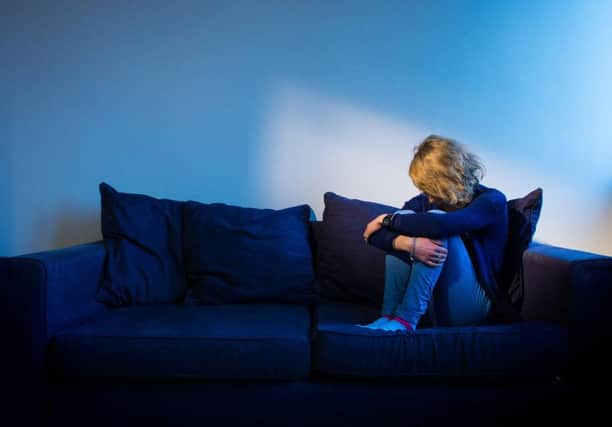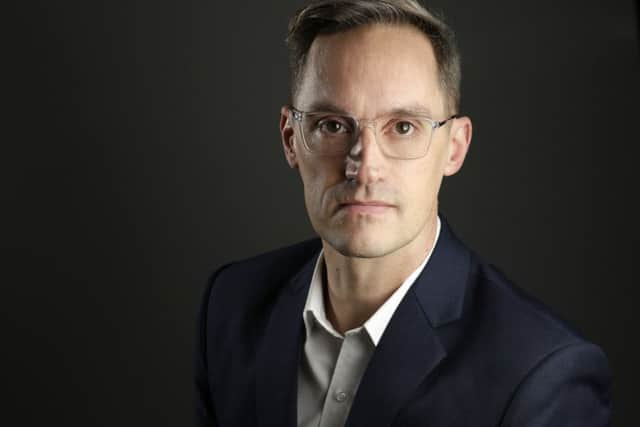Suicide is a public health crisis, so why isn’t it being tackled like one? – James Jopling


The true devastation that these figures represent is hard to calculate. They represent far too many devastated and heartbroken partners, families, and friends. They represent far too many schools, workplaces and communities struggling to come to terms with a sudden and painful loss. And they represent far too many people, all over Scotland, left facing heartbreaking questions with no easy answers.
In the face of figures like this it is natural to feel overwhelmed. But it’s more important than ever to remember that suicide is not inevitable. We can prevent it – but it requires ambition, investment and a belief that there is a role we can all play.
Advertisement
Hide AdAdvertisement
Hide AdIt’s natural to seek out a single action or policy that could reduce suicide. But the factors that lead to each death are as complex as the factors that shape our daily lives. Understanding and addressing these can’t be achieved by any one person, service or organisation acting alone. That’s why we believe suicide prevention needs to be a public health priority.


But what does public health mean and why is it relevant to preventing deaths from suicide in Scotland? The Faculty of Public Health defines public health as “the science and art of promoting and protecting health and well-being, preventing ill-health and prolonging life through the organised efforts of society”.
Health, in this context, does not just mean the absence of disease. Public health defines health very broadly as a resource for everyday life. This includes physical, mental, and social well-being and resilience. Seeing suicide in this context is critical to addressing some of the underlying factors that contribute to some people being at higher risk than others.
Preventing suicide means recognising that it isn’t simply a health issue in terms of treatment or medication. Suicide and inequality are very strongly linked. People living in Scotland’s poorest communities are three times more likely to die by suicide than those living in the most well-off communities. The poorest men in those communities have a ten times greater risk of suicide than the wealthiest men in the wealthiest communities. Money worries, debt, job loss and insecurity all lead to an increased risk.
Preventing suicide means understanding the importance of demographics and culture. Men are three times more likely than women to die by suicide. Earlier this year, our survey of Scots men found that more than a third don’t ask for help when they are struggling because they prefer to solve their problems themselves. Even though seven in 10 men said talking about problems was a sign of strength, only a quarter said they always ask for help when they are struggling. For too many men across Scotland there is a discomfort that continues to be a barrier to asking for help, even when it is most needed.
Preventing suicide means understanding and address emerging issues, particularly as we seek to support younger people. The statistics in 2018 showed deeply concerning rises in suicide in our under 25s, particularly women. We need to better understand the pressures that shape young people’s lives and their well-being. Understanding and addressing these complex and related factors requires research and investment. Sadly, this is an area where prevention lags behind.
Though suicide kills more young people under 29 in Scotland than all types of cancer combined and remains the leading cause of death among men under 50 in the UK, it receives just a fraction of the funding of other health areas. For every cancer patient in the UK we spend £228 on research. For every mental health patient, we spend just £9. Only 2 per cent of that goes towards research to better understand and prevent suicide.
Taking a public health approach to suicide prevention in Scotland means making suicide prevention everyone’s business. It means working to build resilience through our schools, colleges, and youth groups. It means tackling the impact of inequality and poverty by ensuring people can find and keep secure and fulfilling work and live in safe and secure homes. It means working with businesses, charities and communities, to ensure people feel able to talk openly when they are struggling and know where to turn for support. Only then can we hope to reduce the devastation of so many deaths from suicide.
You can call the Samaritans at any time on 116 123. It is free, anonymous and confidential. Visit www.samaritans.org for more information.
James Jopling, executive director for Scotland, Samaritans.